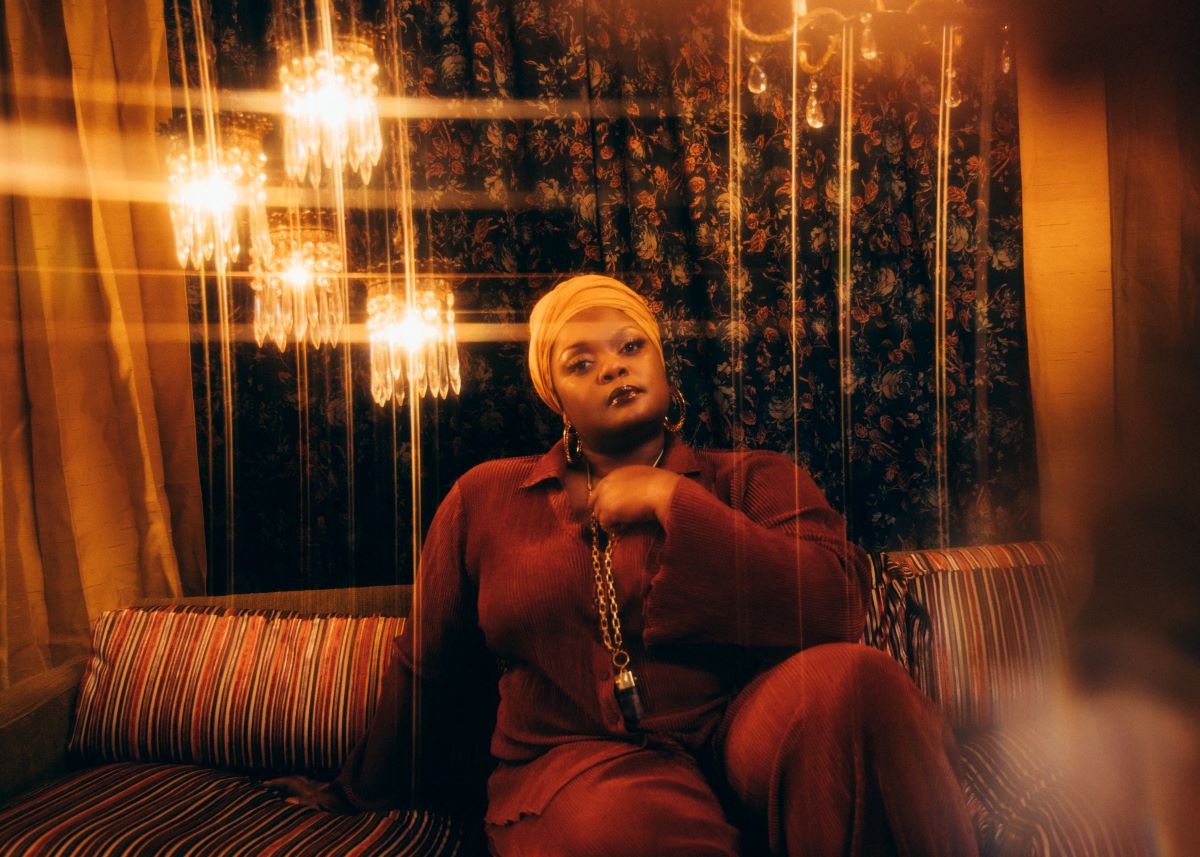
Photo credit: Anna Haas
Tell us about your tour vehicle. Any notable breakdown stories?
In 2021 I leveled up to a 2017 Chrysler Pacifica named Vivian Van-Ross (get it?). It’s been perfect for my little trio of perimenopausal women. Each of us has our own temperature control and seat cushions to support our bad backs, hips and knees. When I bought Vivian, she had 18,000 miles and now she’s clocking in a little over 98,000. Blessed be, I haven’t needed any major repairs done on Vivian (let me go knock on wood) and she’s only had one flat tire in the middle of the night and frozen windshield wipers in a snowstorm. Vivian Van-Ross has definitely been my ride or die and the only reason I’d get rid of her would be to level up to a 2023/2024 so I could get that Apple CarPlay and hybrid situation.
How do you eat cheaply and/or healthy while on tour?
Sorry, I’ve never seen “healthy” and “tour” in the same sentence. Eating cheap on the road though? Oatmeal packets, RX Bars, and grocery store runs for car snacks in order to avoid those emergency middle of the night fast food stops. One thing I’ve also learned to do is request dried fruit, trail mix, granola bars in my rider so that we can “backpack” those items for car snacks/meals for the rest of the tour.
How many strings do you break in a typical year? How much does it cost to replace them?
I’m pretty good with the string breakage these days! I typically break about two strings a year and it’s always the G string somehow. I use the Elixir strings so they’re a bit pricier than most (around $15 a pack). I’ve never thought to ask if they just sell individual replacement strings though! That’d be a great big help.
Where do you rehearse?
My rehearsal space is this super cozy space that’s decked out in vintage pole lighting, large potted and hanging plants, velvet art, and a massage chair. Fancy… I know. The ceiling even has gold glitter flecks that sparkle in the evening light when I decide to unplug the amps and convert the space back into my living room.
What was the title and a sample lyric from the first song that you wrote?
My first song I ever wrote was actually a piano piece titled “Requiem for Mrs. Bridget.” I wrote it in middle school for my friend Mark who had just lost his mother to a horrific crime. There weren’t any lyrics, but the vibes were definitely left hand heavy in the key of C minor.
The first song with lyrics that I wrote was titled “Be Still.” I was working my first official job as a contract music therapist in Atlanta and kept having recurring nightmares about the young children I was working with in the home setting. A line from the chorus was “Be still my heart, push the chaos aside. Even when it’s dark you know you will survive.” It’s amazing to me how, 20 years later, that melody still comes to me in times of stress and grief.
Describe your first gig.
Are piano recitals considered gigs? My first gig ever was a piano concert at my church where I played a few original pieces that I wrote for piano along with a few Beethoven pieces sprinkled in here and there. If my memory is correct, I even played an oboe piece for the crowd. Very elite, I know.
What was your last day job? What was your favorite day job?
My last day job was as a barista in East Nashville at a spot called Portland Brew. People were scared to order from me, apparently. I don’t have a face for service. My FAVORITE day job was as the music therapist in Athens, GA at a behavior modification school. I was running a national internship program and was the clinical advisor for music therapy majors from the University of Georgia. I really loved working with the high school students and teaching them how to produce their own music on Garageband. I even held “Garageband Grammys” each year where the students would showcase the songs they’d written in small groups. We had a “Step and Repeat” and even would find “red carpet” attire for the kids to have their photos taken in front of. Talk about a confidence booster!
How has your music-related income changed over the past 5-10 years? What do you expect it to look like 5-10 years from now?
Honestly? The income has increased and diversified, but the bills have increased as the team has grown. Even though I am making more money after 18 years in the industry, I’m spending the most I have ever spent in order to sustain this career. I hope in the next 5 to 10 years to see the industry begin to reinvest in their artists so that we can actually make a living wage.
What one thing do you know now that you had wished you knew when you started your career in music?
To stretch – physically, mentally and emotionally.
